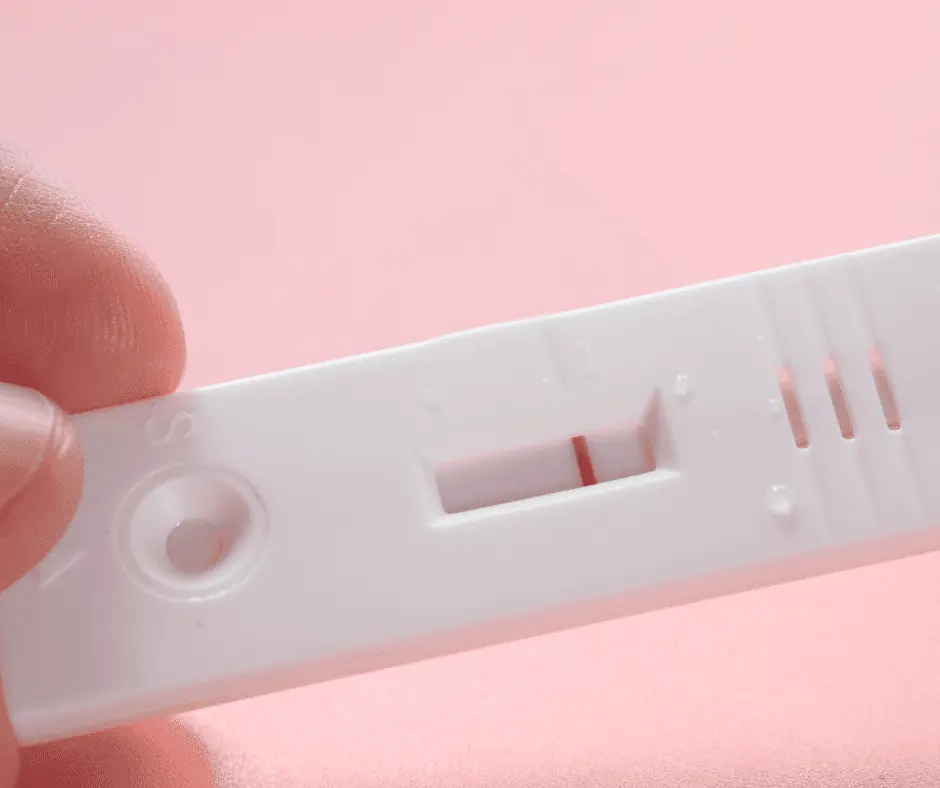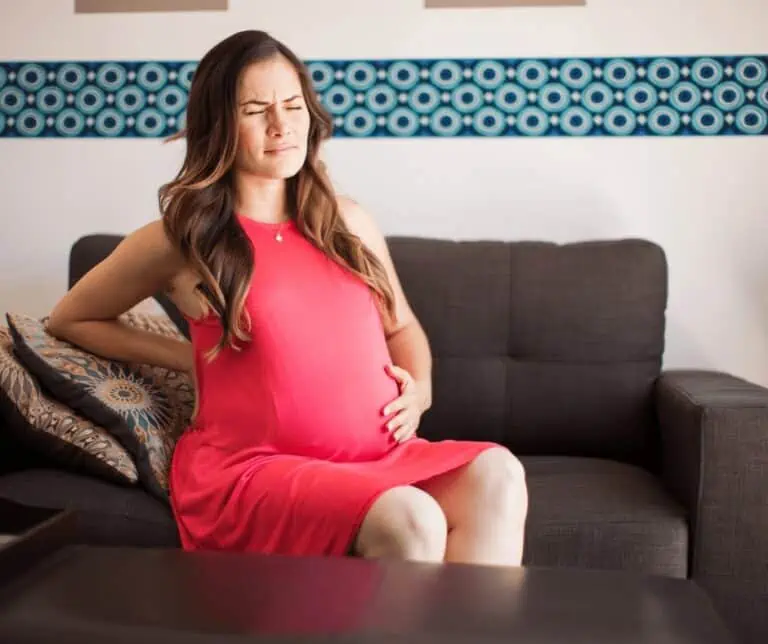Top 10 Fertility & Pregnancy Questions Answered
This post may contain affiliate links. As an Amazon Associate, I earn from qualifying purchases.
This week, Evan Kurzyp with Fertility2Family shares some insight on all your questions related to fertility. Whether you’ve decided you want to get pregnant, or are already trying- all of the info below is very helpful!
Once you decide to conceive, it is essential to understand how fertility works to attain your goal easily. What’s more, knowing your fertility will enable you to avoid unintended pregnancies, and you will take control of your life and reproductive health.
It will also be easier to enjoy sex with your partner without worries. This post will share some of the common fertility questions to equip you with the knowledge you need, so keep reading on to know more.
Your 10 Most Pressing Fertility Questions – Answered!

What is the meaning of fertility?
Female fertility is a woman’s ability to get pregnant and bear children. This concept of fertility is related to fecundity, even though the terms refer to varying things. Fecundity can be defined as a physiological potential to reproduce, determined by one’s health, age, and willingness to get pregnant. On the other hand, fertility is the actual ability to have children. Unlike fecundity, you can measure a woman’s fertility statistically through fertility rates.
When do women become fertile?
Every woman’s fertility will start at a different age and happens around the time when a girl gets there first menstruation (menarche). For many girls, menarche occurs when there are about 12 or 13 years old, even though it can happen earlier or after that age.
A girl’s menarche timing is usually influenced by nutrition, environmental factors, and genetics. However, some factors can delay menarche. For instance, ballet dancers, gymnasts and distance runners will likely have delayed menarche. Some studies propose that this is caused by low body fat, which leads to amenorrhea (absence of periods), and anovulation.
It is important to note that menarche doesn’t always mean that the girl has become fertile. In most cases, the adolescent menstrual cycle tends to be irregular for the first two years, having anovulatory cycles. It takes about two years on average after menarche for a girl to achieve a regular ovulatory cycle.
At what age will a woman stop being fertile?
Menopause is considered to be the time when the fertility period of a woman ends. One is believed to have reached menopause if they experience amenorrhea for 12 months after getting their final menstrual period, without any other physiological or pathological causes.
Currently, the average menopause age is considered to be 51 years. 5% of women experience late menopause, which occurs at 55, while another 5% experience early menopause, occurring between 40 to 45 years. A few years before this, however, the periods become more irregular and infrequent. Hormonal changes that occur during this time can cause additional symptoms like hot flashes, vaginal dryness, and frequent mood swings. This period is known as the premenopausal period.
Many women experience a sharp fertility decline before menopause. Female fertility is at its highest between the late teens and late 20s, and then it starts to decline in the thirties. This doesn’t mean that women who are over the age of 30 cannot get pregnant naturally. However, your fertile window will be narrower, which is why most women opt to freeze their eggs if they intend to delay their family planning.
Is there a fertility test?
There isn’t a single test you can use to check fertility, but an infertility specialist can order several tests if they think you have infertility problems. At first, they will review your medical history, do a physical examination, and have an ultrasound to determine if you have any abnormalities in the reproductive system. The doctor will also schedule an ovulation test and blood test for thyroid, prolactin, and progesterone hormones on various days of your menstrual cycle. They can also conduct ovarian tests to understand the reasons why you are infertile.
Here are common conditions that may affect female fertility:
- Fibroids
- Polycystic ovary syndrome
- Endometriosis
- Pelvic adhesions
- Fallopian tube blockage
- Pelvic inflammatory disease
- Uterine malformations
What factors affect fertility?
Several factors can increase or decrease female fertility, including:
Sexually transmitted diseases – STDs are known to cause physical damage to the reproductive organs. For instance, if you have chlamydia, the condition can block your fallopian tubes, making it difficult to conceive or increasing ectopic pregnancy risks.
Your weight – being overweight or underweight can have an impact on your hormonal levels. This will affect your ovulation as well as the menstrual cycle. For this reason, it is advisable to maintain a healthy weight to enhance female fertility.
Chronic illnesses – health conditions like diabetes or lupus can make it hard for a woman to conceive or worsen her health. If you have been suffering from any chronic disease, be sure to determine if it affects your fertility and ask your doctor to recommend the best option to increase fertility.
Your diet – whether you have managed to maintain a healthy weight or not, some substances and certain foods can impact your fertility. If you’d like to try to conceive, it is advisable to avoid substances like caffeine, alcohol, trans-fats, drugs, tobacco, pesticides and simple carbs.
Can previous abortions affect your fertility?
Medical abortions have not been found to affect a woman’s fertility. So, unless you had some severe complications, a previous abortion will not affect your future fertility.
In some cases, abortion can affect fertility if it is caused by an infection that developed in the uterus and, over time, spreads to the fallopian tubes and ovaries due to lack of treatment. In rare cases, some women who have several surgical abortions tend to develop Asherman’s syndrome, whereby scar tissue forms inside one’s uterus. Luckily, this condition can be treated to improve fertility by removing the tissue through surgery
Does the length of my cycle affect fertility?
Your menstrual cycle length is usually determined from the day you start your period to the day you begin the next one. Generally, the menstrual cycle lasts 28 days, but it is still normal to have a cycle lasting between 24 -35 days.
During this time, the uterus lining thickens to prepare for pregnancy. Ovulation happens about 12 to 14 days before you get your next period. If pregnancy does not occur, you will get your menstruation, and the bleeding will last anywhere between 3 to 7 days.
Provided your cycle is irregular and falls within normal ranges, your fertility will not be affected by the length of your cycle. But, if your cycles are irregular or longer or shorter than the normal range, there is a probability of having some fertility issues. If the bleeding is prolonged during menstruation, it could signify that you are not ovulating normally. Also, a menstrual cycle that lasts longer than 35 days or less than 24 days and menstruation that can last over seven days will merit further evaluation from a medical expert.
What’s the best way to boost my fertility?
There are many easy things you can do to boost your fertility, including:
Eat healthier foods. Although there isn’t a specific diet for boosting fertility, eating healthy meals will provide the nutrients your body requires and enable you to have a healthy weight. All of these are important if you intend to conceive. Some foods you should include in your diet are complex carbs, leafy greens, mercury-free fish, citrus fruits, healthy fats, seeds and nuts, as well as plant protein.
Practice safe sex. If you do not intend to start a family soon, having safe sex will protect you from sexually transmitted diseases. Some STDs such as gonorrhoea and chlamydia can cause female infertility, so it’s better to practice safe sex. When you decide to get a baby, you and your partner should get tested because some people are asymptomatic carriers of sexually transmitted diseases.
Practice low-intensity exercises. Exercising will help keep your body healthy, but you shouldn’t overdo it if you intend to get pregnant. Too much exercise can overexert your body, so it’s better to opt for low-intensity workouts like walking and yoga.
Take prenatal vitamins. If you’d like to try to conceive, taking prenatal vitamins containing minerals to avoid complications when the baby is growing in the womb is advisable. The conditions you will avoid include stunted physical growth, neural tube defects, deafness, anaemia, and severe mental disability.
Track your cycle. Keeping track of your ovulation and menstrual cycle will increase your chances of conceiving. This is because you will know your high fertility periods and take advantage of them to conceive. It will also be easier to diagnose abnormalities and create a fertility chart.
Is a couple’s fertility only determined by a woman?
Of course not! Male fertility will also affect the chances of conceiving. Research shows that 40% of infertility is caused by malefactors. 10% to 20% of the couples that undergo infertility evaluation are usually affected by a combination of female and malefactors. Here are common causes of male infertility.
- Low sperm count or mobility (caused by environmental and genetic factors)
- Infections
- Varicocele
- Endocrine disorders
- Undescended testicles
How long should you try to conceive before seeking infertility treatment?
Women under the age of 35 should consider consulting an infertility specialist if they do not get pregnant after a year of practising regular unprotected sex. Those over 35 or who suffer from certain medical conditions that can affect fertility should talk to a specialist six months after having unprotected intercourse regularly.
When a doctor confirms that you or your partner have a fertility problem, they’ll provide the best treatment, which could include assisted fertility treatments like IVF. When the doctor determines that your probability of conceiving is too slim or null, you can create a family through adoption or surrogacy.
Living a healthy lifestyle that includes exercising regularly, eating a balanced diet and preventing STDs will help maintain your fertility and increase your chances of getting pregnant. Even if you face fertility problems, a health care provider can find the best way to improve your fertility so you can have a family.
Did that answer all of your fertility questions? Is there something you’d like added? Do you have any insight? We’d love to hear in the comments below!









Thank you for providing us a good information.Santhathi IVF clinic in Bangalore. We have trusted specialists & advanced technology, equipments for your fertility treatment. Visit fertility treatment centre for New Hope.